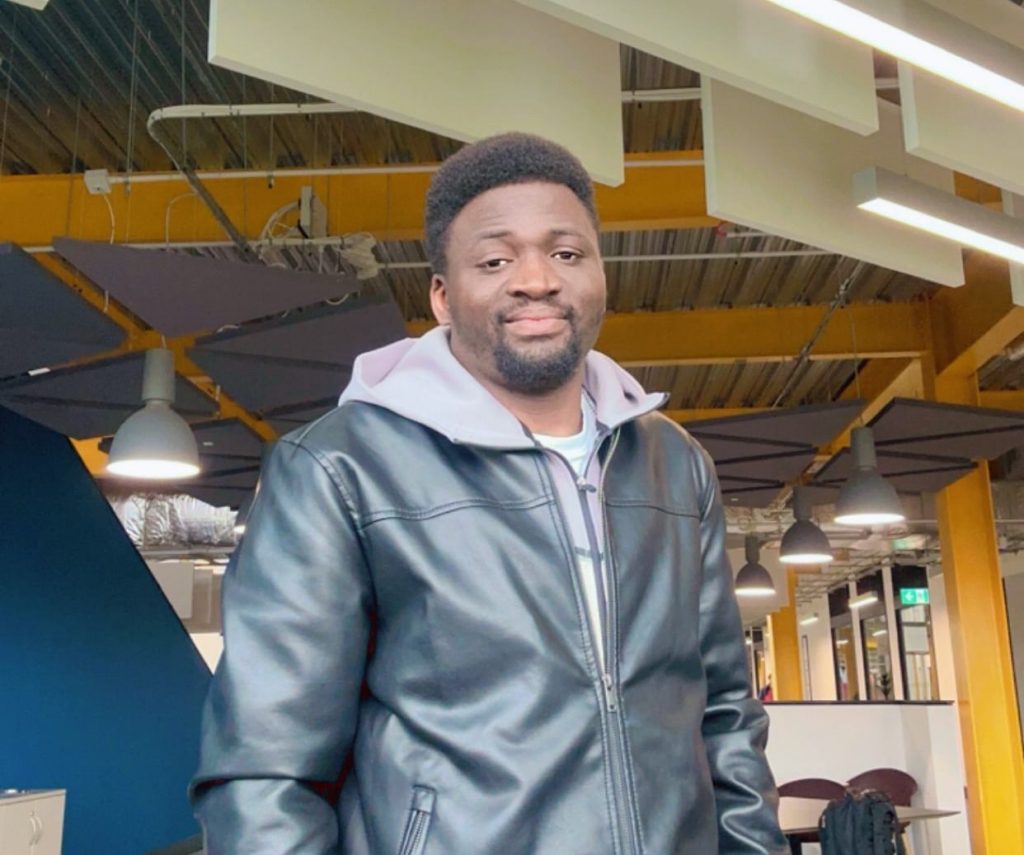Olalekan arrived from Nigeria to study our MSc Data Science. As part of the course, he worked with the Royal College of Nursing on an industry collaboration project.
Read below to learn more about his experiences at Salford.
Why did you choose the University of Salford?
I chose the University of Salford because of its excellent reputation for data science education and its commitment to providing practical, industry-focused learning. Salford’s strong connections with industry partners and emphasis on employability were also key factors in my decision-making process. Additionally, the modern facilities including the £65 million SEE building and the opportunity to learn from faculty members who are experts in their field also contributed to my decision.
What made you feel welcomed when you arrived?
The welcoming and inclusive community at Salford made the transition easier. The University has a fantastic support team, askUS, who you can go to for any concerns outside of your studies. There are lots of Welcome events and student societies like the International Café which made me feel more at home and connected. Overall, the friendly atmosphere and access to support when I needed it made Salford feel like home very quickly.
How is your course taught?
MSc Data Science is taught through a combination of lectures, seminars, practical workshops and project-based learning. Lectures provide foundational knowledge and introduce core concepts, while seminars offer interactive sessions for in-depth discussions. Practical workshops allow hands-on experience with data analysis tools and software including Python, R and SQL. Additionally, the course provides collaborative projects with the industry that enable students to apply their knowledge to real-world scenarios and develop critical thinking skills.

Did you carry out an industry collaboration project?
I had the opportunity to carry out a project with the Royal College of Nursing where I applied the skills, I had learned to forecast the number of nurses required in a tertiary area of work. This involved using machine learning algorithms, evaluating their performance and then selecting the best model to move forward with. The project provided practical experience in data analysis, problem-solving and collaborating with different stakeholders. It also reinforced my passion for using my skills to help solve real-world problems that can genuinely make a difference in people’s lives.
I believe this experience will significantly boost my employability skills by demonstrating my capacity to work effectively in a professional environment. The project has equipped me with a strong portfolio of work which will be an asset in job applications and interviews. Additionally, the industry connections and references I have gained will be invaluable when I come to search for a graduate job.
What are your future plans?
I would like to leverage the skills and knowledge I have gained at Salford to advance my career as a data scientist. I aim to work in a dynamic organisation where I can apply my expertise to solve real-world problems. After the experience on my project in the healthcare sector, my aim is to find a role within this industry as I have seen first-hand the impact I can have. I also plan to continue my professional development through further education and professional qualifications to stay at the forefront of the field.
What advice would you offer to new international students?
I would advise them to embrace the diversity of opportunities that Salford has to offer. Get involved in activities on campus and join societies to build a network and feel more integrated. Don’t hesitate to reach out to support teams for help – they are happy to assist you. Make the most of the rich academic resources and stay proactive with your studies. Finally, take time to explore the local culture and city as it will enrich your overall experience.